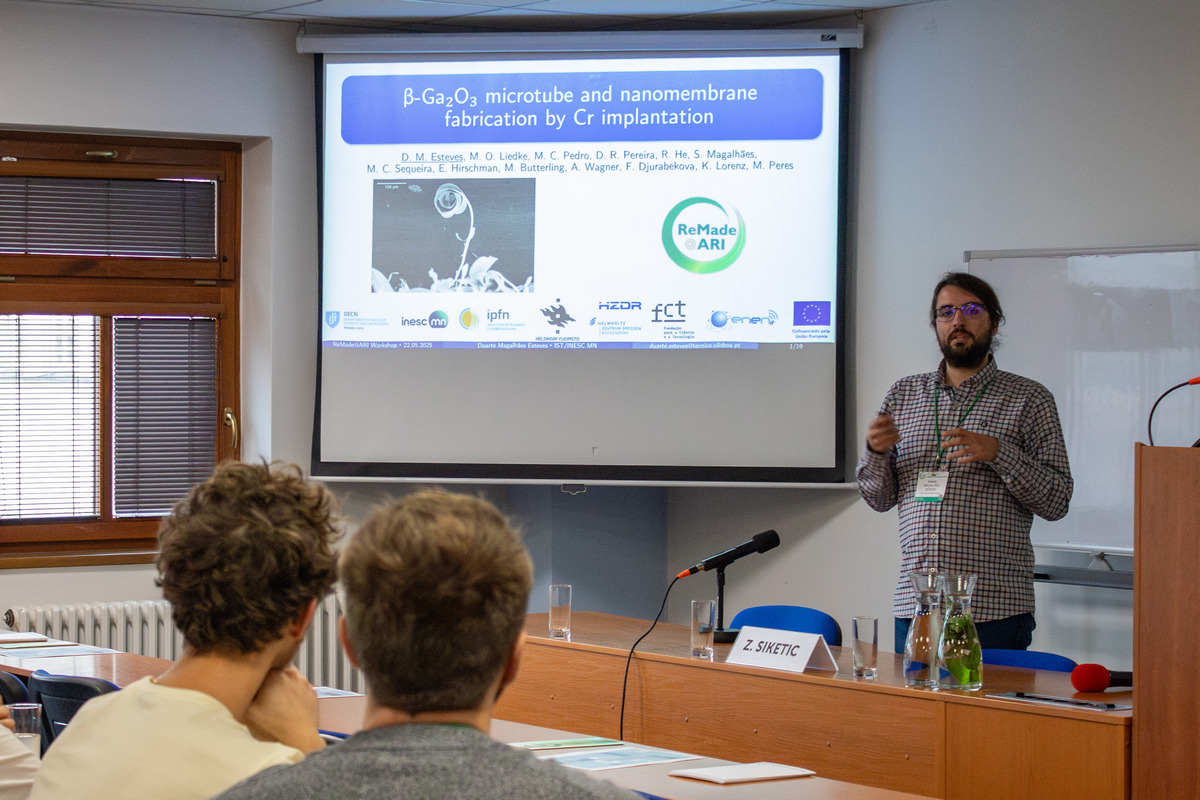
NPI organized the ReMade@ARI workshop, focusing on cutting-edge materials characterization and international collaboration
16. 06. 2025

Held in Prague on May 22–23, 2025, the event featured interdisciplinary discussions on modern characterization methods, including two plenary lectures and 25 expert presentations—six of which were contributed by young scientists and research infrastructure users.
The workshop highlighted advanced analytical techniques using ion beams, neutron radiation, positron annihilation spectroscopy, electron microscopy, and characterization in extremely strong magnetic fields, all integrated within the ARIE network and the ReMade@ARI consortium.
Plenary lectures explored sustainable development in materials technology, emphasizing research and innovation in recyclable and energy-efficient materials, sensor-enabled compounds, and novel materials for energy storage. Key topics included MeV SIMS applications for organic material characterization, ion beam microstructuring for graphene-based sensor development, and neutron activation analysis of complex industrial waste materials, including carbon nanostructures.
Special attention was given to the NanoEnviCZ infrastructure, STEM-in-SEM methods, and advanced positron spectroscopy applications for defect analysis and hydrogen storage material research. Strong magnetic fields provided new insights into electronic structure and defectology.
The program also included a tour of the accelerator mass spectrometry (AMS) and Tandetron laboratories at the Nuclear Physics Institute of the Czech Academy of Sciences in Řež. Participants explored AMS applications in radiocarbon dating and trace element analysis, as well as Tandetron-based energetic ion beam techniques for material modification, defect detection, and structural analysis.
As an active partner in the ReMade@ARI project, NPI connects key European research infrastructures, including RADIATE (ion beams), LENS (neutron sources), EMFL (strong magnetic fields), and NanoEnviCZ, alongside other non-ARIE facilities, fostering innovation in materials research.
Read also
- The NPI reaches key milestone in AlphaStar project
- President of the Czech Academy of Sciences Radomír Pánek visits the Nuclear Physics Institute
- The Nuclear Physics Institute helps improve lithium-ion batteries
- Change of the Registered Office Address of the Nuclear Physics Institute of the CAS
- 70 years of the Nuclear Physics Institute in the journal Jaderná energie
- Microtron MT25 featured in a Czech television report
- The NPI is co-organizing a conference to celebrate prof. Pavel Exner's 80th birthday
- Launch of the CANAM User Portal 2.0
- Launch of the CANAM User Portal 2.0
- Meeting of the Scientific Advisory Committee of the FAIR-CZ Project at Villa Lanna

